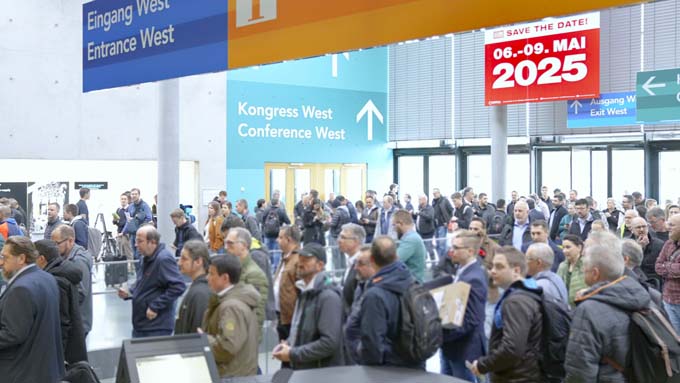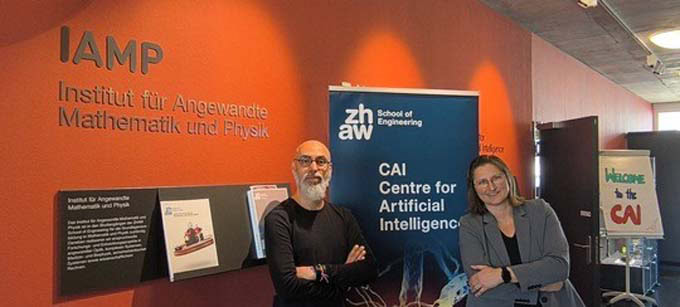Study: Why intelligent process automation is making the economy greener
Companies around the world are increasing their investments in sustainability and driving forward corresponding initiatives. A recent study by Cognizant of 3,000 executives confirms that spending in this area will increase significantly by 2025. The results indicate that the number of respondents who will increase their spending on sustainability by ten percent or more in this period will almost double.

The question that concerns managers the most: What is the best place to focus sustainability measures?
Process optimization and automation as a means to greater sustainability
Optimizing and automating processes is a proven means of achieving greater sustainability. This not only significantly increases operational efficiency, but also reduces the ecological footprint of internal workflows and processes right through to the value chain. A practical example illustrates this: If companies integrate an automated building management system into the energy distribution of a so-called smart building, energy savings of 10 to 15 percent can be achieved. Extended functions such as demand-based ventilation can save a further five to ten percent of energy.
Process optimization and automation within the supply chain also have the potential to identify and eliminate inefficiencies, reduce production- and transport-related emissions and support the goals of the circular economy. Recycling and the circular economy are time-consuming and complex processes, but they save up to 90 percent of CO2 emissions compared to the production of new plastics.
RPA/IPA tools and technologies: Effective and yet underutilized
The study also shows this: When looking at impact, Robotic Process Automation (RPA) and Intelligent Process Automation (IPA) tools and technologies clearly show the greatest influence on promoting sustainability: 79 percent of respondents who already use or have used process automation rate process optimization as effective or very effective in promoting their sustainability strategy - making process optimization the most effective technology in the areas surveyed.

Despite all these benefits, however, the challenges associated with implementing automation technologies have often proved daunting. Automating and optimizing processes requires cross-company collaboration and coordination between different functions, which often use different tools and systems. Only 42 percent of study participants ranked RPA and IPA, which includes automation and AI technologies, among the top six technologies for improving environmental sustainability.

Optimizing processes with a digital twin
New, AI-based approaches are now helping to take the fear out of these challenges. AI-supported digital twins, for example, are an important building block for process optimization. Digital twins are images of physical objects that are enriched with data, information and models throughout the entire life cycle of the production process. They are continuously updated, optimized and expanded with the help of sensor data. This enables companies to monitor processes in real time, identify challenges more quickly and address them by optimizing processes.
One industry that can particularly benefit from this is the battery sector, as demand is constantly rising due to the mobility transition and the increasing popularity of electric vehicles, among other things, and more and more battery factories are being built - especially in Europe, the requirements, standards and regulations for quality, sustainability and process stability are high. A digital twin can help to increase quality here, for example, by revealing weak points in production and accelerating process optimization at the same time.
AI as a catalyst for process automation and optimization
Even beyond the digital twin, AI enables a new level of creativity, problem-solving and adaptability in the field of intelligent automation. This will further amplify the impact of intelligent automation. By transitioning to AI-powered business models, companies can accelerate their sustainability efforts through innovation and more dynamic resource optimization along the entire value chain.
Such advances will be particularly evident in areas such as material identification and product design - these can be optimized for minimal environmental impact, longevity and reuse or recycling. Predictive maintenance and proactive supply chain optimization will also benefit from these developments. As a catalyst for process automation and optimization, AI not only enables efficiency gains, but also paves the way to a more sustainable future.
About the author
Dr. Ulrich Faisst is Chief Technology Officer (CTO) for the Central Europe region at Cognizant. He is responsible for the growth strategy and at the same time strengthens the company's customer focus and technology leadership in the region. Ulrich's expertise includes transformation strategies and implementation, automation and AI, IoT, cloud, digital engineering, SAP and Salesforce.
Current study by Cognizant









